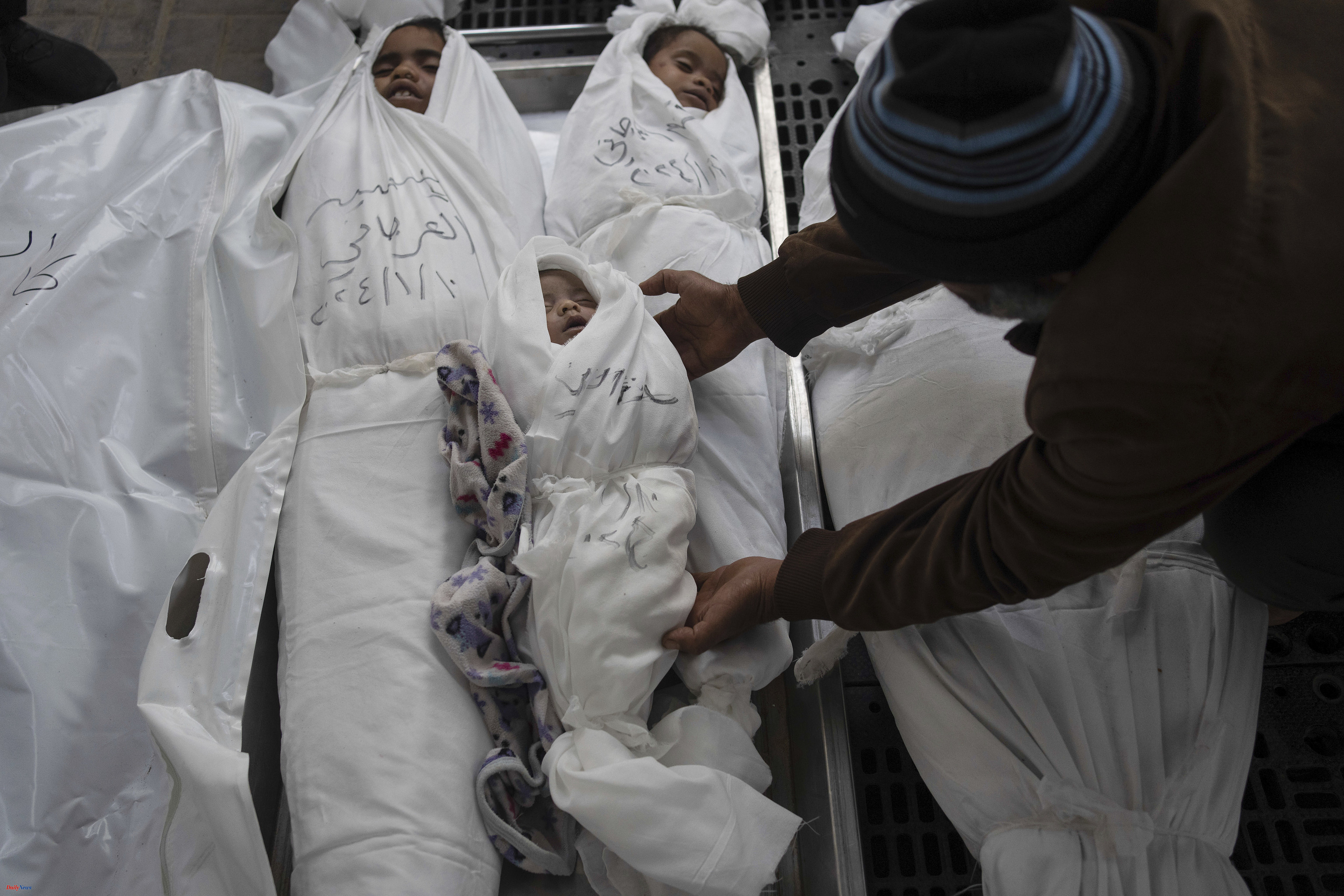The international organization for the defense of Human Rights Human Rights Watch (HRW) has charged this Thursday against the "hypocrisy" and "double standards" of the international community when it comes to condemning the violations committed against civilians according to their interests in different parts. of the world. "The year 2023 has been a terrifying year for Human Rights. We have seen a series of trends in the erosion of Human Rights," explained Tirana Hassan, executive director of the NGO, in the presentation, via Zoom, of the Report. World Cup 2024.
The paradigmatic example that HRW contrasts is that of Ukraine and Gaza, in what it has described as "selective anger." Hasan referred to the context of condemnation against the terrible attacks by Hamas against Israel on October 7, "which correctly had to be condemned as war crimes." To criticize that "then the United Kingdom and the United States have given unconditional support to Israel and have not condemned Israel's violations in Gaza." He added: "These are the same governments that have unconditionally supported accountability mechanisms in Ukraine and condemned China's abuses and repression against the Uighur population."
Specifically, the conflict between Israel and Hamas has been the subject of scrutiny by the organization: "In 2023, civilians were attacked and killed in an unprecedented escalation in recent history." HRW calls the Hamas attack "war crimes" that "deliberately killed civilians, shot at crowds, shot people dead in their homes, and took hostages, including the elderly and children." In this action, 1,200 people died and 249 were kidnapped, of which 133 still remain in the hands of the Islamist group.
In its recently published report, HRW notes the cruelty of the Israeli army against civilians: "Immediately afterwards, the Israeli authorities cut off essential services, such as water and electricity, to the population of Gaza and blocked the entry of fuel and basic humanitarian aid, acts of collective punishment that constitute war crimes".
The document describes how "Israeli airstrikes bombed Gaza incessantly, hitting schools and hospitals and reducing much of the neighborhood to rubble, even in apparently illegal attacks. Israeli forces also illegally used white phosphorus in densely populated areas." In figures compiled through December 11 by HRW, troops ordered "the evacuation of the entire population of northern Gaza and displaced 85% of Gaza's population (1.9 million people)." Palestinian fatalities now amount to more than 23,400, the majority women and children.
For HRW, Gaza is a worrying message that can be followed by an example in other conflicts around the world. "It is a real risk, a green light for other States or actors that, without accountability, human rights violations, the murder of minors, activists or journalists, attacks on hospitals and schools will proliferate," fears the executive director of the organization, based in New York.
Lama Fakih, director of HRW's Middle East and North Africa division, spoke of "alarming trends" in the region last year, with particular attention to the conflict in Gaza, "impunity and lack of respect." to the protection of civilians". "We are bleeding," she lamented. The principles of Universal Rights, she said, "are the basis for building just societies. Peace is not possible without justice."
Human Rights, the HRW team assures in the presentation of the report, are not accessories", but are "the guides of our societies, which define our moral humanity." In addition to the "double standards", transactional diplomacy is another "very worrying trend" that has stood out in 2023.
"We only need to look at the human rights challenges of 2023 to know what we need to do differently in 2024. It was a tremendous year not only for the repression of human rights and wartime atrocities, but also by governments' selective outrage and transactional diplomacy that came at a profound cost to the rights of those not in the deal. Yet, amidst the darkness, we saw signs of hope that showed the possibility of a different path," verify the document.
That "good example" of light in the face of darkness has been Ukraine, where the NGO has praised the efforts of the international community and its global institutions to take action to defend International Humanitarian Law and the Geneva Conventions in the face of attacks by Russia. Although he emphasizes that he would like to see the same concern for these standards in forgotten places like Sudan, Burma or Afghanistan.












